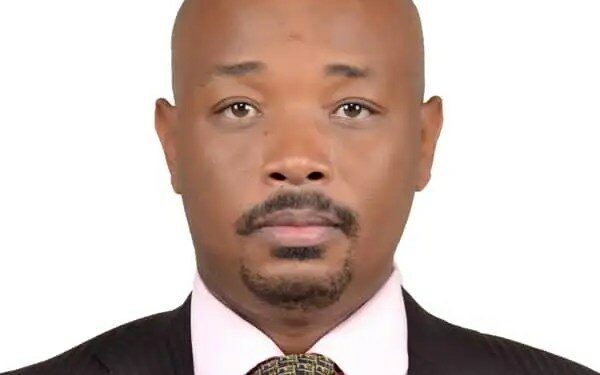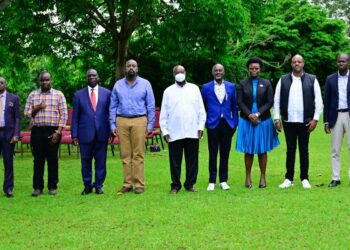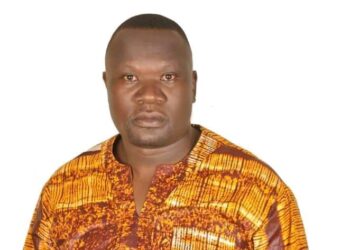Just imagine for imagination’s sake to wake up one morning and oopsss, your phone number is not working anymore because the telecom operator had it de-activated for being dormant and denying them a chance to make money through use of mobile money, data or even airtime. Even worse still, someone else is using it! This isn’t just an inconvenience; it’s a real problem, a night mare and an embarrassment that can cost somebody a lifeline, property or money.
Do you know what it feels to go for Kyeyo or prison only to come back and your phone number that you were using to do business, a number that you used to get registered as proprietor of a certain asset, registration for a TIN, registration for a national identity card, driving permit, passport and to open a bank account has been re-assigned without recourse to you?
Do you know the difficulties you would go through explaining to business partners and service providers why the number you presented to them is no longer yours? This is the bitter truth that my friend Mubarak had to endure when he learnt that the phone number he had used for over a decade before he went to prison was not only ringing from Bundibugyo but was actually registered in the names of a third party, a stranger for that matter.
It dawned on him when he rang a number that he had always thought was his for life being received by a stranger. The innocent female voice on the other side revealed that she had bought the line at a service Centre in Kasese and was not even aware it once belonged to someone else. She however confessed that she had regularly received calls from rude strangers demanding to speak to owner of the number called Mubarak.
When asked if she found any money on the mobile money account, the new SIM card holder said there was zero balance and there was no air time, not even data. It emerged that Mubarak had been using the now re assigned SIM card to save his money and had about half a million before he was sent to serve two years in prison for assaulting his neighbour.
Now that he is out of confinement, where is his address, I mean his phone number that had become his third name, his lifeline and his bank? Is it possible to reclaim that phone number, the answer is no unless he negotiates with the person to whom it was re-assigned. Is it possible to reclaim his money before the number became dormant; the answer is not clear as telecom operators and their regulator have not made any effort to sensitize mobile money user.
We do not know why but the Uganda Communications Commission and telecom operators have hidden this very important secret from consumers and have continued to enjoy the spoils discreetly to the chagrin of the actual owners or the beneficiaries of a deceased SIM card owner who died without disclosing their pin. To have access to such a number or even to get its pin, one needs letters of administration which often takes a minimum of six months to secure.
By the time an Administrator is appointed, the phone number would have been re-assigned to another person if it remains dormant for about 3 months. SIM cards in Uganda are typically deactivated and reassigned after a period of inactivity, which can vary but is often around 90 days. If a SIM card is not used (no calls, texts, or data usage) for this period, it will be deactivated by the operator as instructed by the Uganda Communications Commission.
We are told from the corridors of telecom operators that unclaimed mobile money balances and airtime on reassigned SIM cards are governed by regulations set by the Bank of Uganda and the Uganda Communications Commission. These funds, along with transaction records, are retained by the telecom companies and stored. I would have expected the operators to either return these unclaimed balances to the owners, their relatives or to the consolidated Fund.
Many of these telecom companies think we have forgotten how they cheated us in the late 90s and the early years of the millennium with unconscionable service fees. Even when some have changed names, it is new wine in old bottles. Many Ugandans above the age of 35 were certainly victims of this syndicate and have not forgotten how these operators robbed mobile phone users, at least they should have some shame almost 3o years since they were operationalized.
Somebody must be called to account for all the stolen airtime, data and mobile money on re assigned phone numbers. What appears to be an adherence to the directives of the Uganda Communications Commission could soon land telecom companies in trouble and they will have themselves to blame. Mobile money is potentially some form of air but does not vanish at the option of the operator just because the owner has delayed failed to claim it.
Before then, a person registering for a sim card would be asked to provide details of a next of kin not withstanding that mobile money is actually a banking system. What then does it cost the operator to engage the next of kin before reassigning the phone number, it could have been a number that was being used for business and then the operator assigns it to a competitor.
By re-assigning somebody’s number whether they are deceased on not, the operator is compromising their privacy. Someone else could access sensitive personal information tied to your number. Telecoms ought to know that a right to privacy can only be lifted by a court order, not mere directives from a statutory body like the Uganda Communications Commission. There is a lot of privacy associated with phone numbers and cannot be allocated just like that.
For instance, many institutions such as banks demand that certain steps be taken to know a customer transacting with the bank, it is called “Know Your Customer” which is partly aligned to phone numbers previously presented. Scammers could take advantage and beat a system if they can have access to your official number registered with that entity. For instance, the Ministry of lands officials uses the phone number in previous records to call a registered vendor before transferring a land title into the name of the new owner.
A fraudster can exploit such loopholes to his advantage but at the detriment of the actual owner or beneficiary. I personally think that when the government directed that a 2 be added onto numbers that were in existence, the purpose was to cure a conundrum of running out of numbers to allocate to new customers in future. In case they have out of due to demand as they want us to believe, they should add another digit, recycling dormant numbers should never be an option.
Above all, we are alive to the fact that physical SIM cards are slowly but surely being phased out in favor of eSIMs, which are digital SIMs embedded in devices. This transition is happening gradually, with eSIMs already appearing in many newer phones and other connected devices. While physical SIM cards are not expected to be completely obsolete in the very near future, the trend towards eSIMs is clear and should not create any panic for the telecom sector.
They should not justify their actions on Section 5(1) (f) of the Uganda Communications Commission Act which provides for amending, and administering a national numbering plan. I know that the provision includes the assignment and reassignment of phone numbers but it is not a green card for them to decide as they wish. In the worst case scenario, a phone number should only be re-assigned after two years of inactivity after a proper background check.
Wadada Rogers is a commentator on political, legal and social issues. wadroger@yahoo.ca
Do you have a story in your community or an opinion to share with us: Email us at editorial@watchdoguganda.com














